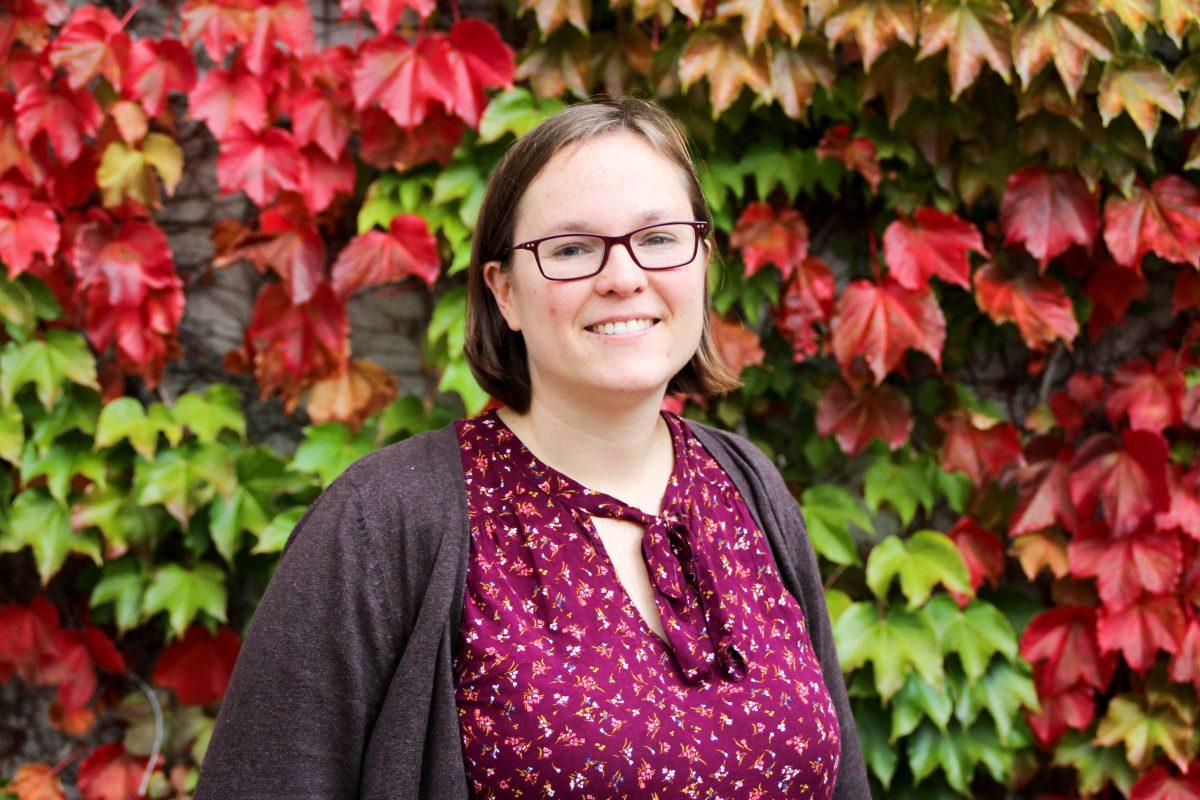On Oct. 17, Wellesley welcomed Robin Chase ’80, co-founder of Zipcar, to officiate the launch of the Student Sustainability Challenge. The initiative invites students to think critically and creatively about ways in which the
Wellesley campus can better align itself with sustainability goals and limit waste. Individual and group projects may be submitted from now until Dec. 22. One proposal will be awarded funding of approximately $3,000, which will allow the winner(s) to implement their sustainable vision in the spring semester of 2018. The challenge is only one of several initiatives sponsored through the College’s inaugural Sustainability Year, which aims to increase awareness of sustainability-related issues and to encourage campus-wide discussion.
The Student Sustainability Challenge aims to emphasize the interdisciplinary nature of issues of sustainability. In this spirit, the launch event was co-sponsored by the Facilities Department, the student environmental action group, EnAct, and the entrepreneurial-focused WeStart.
Kathryn Pundyk ’20, who serves as the outreach chair for EnAct, was the initial force behind the project, hoping to provide support for students to develop and fund their ideas. Though she originally planned to fund the initiative through a Babson-Olin-Wellesley grant, Pundyk was fortuitously connected with science librarian Sarah Barbrow, who had a similar project in the works. The result of their collaboration was the Student Sustainability Challenge.
Barbrow commented that she was initially inspired to develop the challenge during a meeting hosted by the Advisory Sustainability Committee on which she serves.
“[S]tudents were beginning to talk about ways to make Wellesley more sustainable in that meeting, and we, as a [c]ommittee, wanted to continue that momentum and end up with something concrete. The Facilities Department decided to allocate funding so we could have these conversations have actual impact by the end of the theme year,” she said.
A plethora of resources will be made available to students planning to develop a proposal. In the coming weeks, Director of Corporate and Foundation Relations Karen Ossen will be hosting an upcoming grant- writing workshop, and EnAct will host a brainstorming panel featuring Boston-area college students actively involved in sustainability projects. In addition, Dorothea Von Herder, sustainability coordinator, and Sarah Barbrow are both available to provide guidance and support. The Challenge is sponsored by Wellesley’s Advisory Sustainability Committee, which consists of faculty, students and administrators responsible for the implementation of sustainable institutional policies. The group aims to adopt an interdisciplinary approach to its mission, and as such includes faculty members representing STEM fields, social sciences and the humanities. English Professor Marilyn Sides, who serves on the Advisory Sustainability Committee, noted the integral role many of the greatest American writers—including Henry David Thoreau, John Muir, Aldo Leopold, Rachel Carson, Annie Dillard and Bill McKibben—have played in the environmental movement.
“[T]he humanities gives and has given voice, vision and reflection to environmental sustainability. Many of the most revered figures in the American environmental movement are exciting and powerful writers…. Poets from Bashō to Wordsworth to Whitman to Bishop to Snyder have been in ‘conversation’ with nature. Film- makers, artists, historians, too, have dramatized the beauty of our earth and environmental catastrophes,” Sides commented.
Pundyk encourages students to submit proposals even if they are not yet in full form.
“The team of faculty and staff mentors are eager to help students flesh out their ideas and want to support students in learning new skills. The Challenge is not about starting from a perfect idea on day one, it is more about identifying areas for improvement and starting conversations about how we get to a solution. The ideas submitted in pre-applications will be malleable, so don’t be discouraged from getting involved just because you don’t know how to solve the problem in the beginning,” she said.
Barbrow recommends interested students visit the Challenge webpage (https://www.wellesley. edu/facilities/sustainability/student-sustainability- challenge), where they can find a listing of ongoing workshops, office hours and additional resources.






